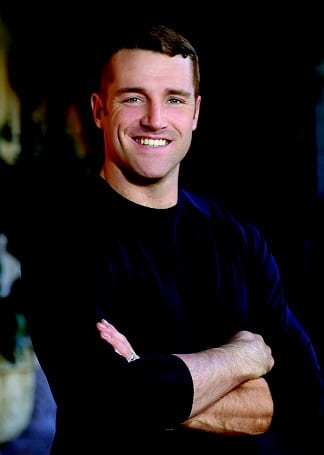To Help Clients Succeed, Keep Change Simple
Samuel L. Berry, MS, emphasizes the importance of careful listening and urges fitness professionals to take the process of change one step at a time.

Samuel L. Berry, MS, is a Master Trainer for the American Council on Exercise and for Functional Movement Systems. He serves a wide range of clients and athletes aged 11–81 who are working toward a variety of objectives. In addition to his roles as a trainer and educator, he has contributed to publications for Harvard Medical School, Encyclopedia of Sports Medicine, PTontheNet.com and prominent peer-reviewed publications such as The Journal of Pediatrics.
His work with the Lucile Packard Children's Hospital Stanford addresses online exercise interventions for overweight youth and the effectiveness of live online exercise intervention for pediatric heart-transplant recipients. Berry received a master's degree in exercise science from Florida International University and a bachelor's in health sciences from Keene State College. He holds or has held certifications with nationally accredited certifying bodies, including the American Council on Exercise, American College of Sports Medicine, National Academy of Sports Medicine, and National Strength and Conditioning Association.
ACE: How do you personally see the obesity epidemic affecting our society?
Samuel Berry: The obesity epidemic is affecting our society in many ways. At a foundational level, it distorts society's perception of individuals battling obesity. The unnecessary stereotypes push down the self-efficacy of those suffering from obesity. Being cast as "lazy" or "unmotivated" by society diminishes their motivation to make lifestyle changes. This mindset facilitates a ripple effect in the quality and cost of health care for everyone, and this vicious cycle perpetuates itself owing to cultural fear, materialism and capitalism.
ACE: Of all the habits and environmental factors that lead people to obesity, which do you feel is the most challenging for them to overcome, and why?
Samuel Berry: There are many layers of challenges, habitual and environmental,
that push people toward obesity. Lack of movement on a day-to-day basis—not just exercise, but movement—is becoming more commonplace because of automation and technology. Even with technology like wearable movement-tracking devices, people lacking the environmental or intrinsic motivation to move will find ways to use automation or technology to take the path of least resistance or least effort.
Environmentally, our society is meat and dairy crazy. There is a lot of peer-reviewed and anecdotal evidence that individuals adhering to predominantly plant-based diets have substantially lower occurrence of obesity and its associated health risks, which include diabetes, heart disease and cancer. An overall reduction in meat and dairy consumption in all individuals will not only reduce caloric intake but also significantly lower total-body inflammation. Inflammation in the joints and digestive system is a major deterrent to movement for individuals battling obesity, because of the pain and discomfort often associated with inflammation.
ACE: What skills do you feel health and fitness professionals need to develop so they can more effectively connect with clients affected by overweight and obesity?
Samuel Berry: The single skill that I feel is most important for truly connecting with these clients is the skill of listening. For many health and fitness professionals, listening is simply the act of waiting for their turn to speak. Authentic listening allows health and fitness professionals to ideally reach an empathetic level with people battling overweight and obesity. With empathy comes one of my favorite skills, which I am always trying to improve in myself: the ability to relate, which is directly associated with authentic listening.
ACE: What misconceptions—if any—do you believe health and fitness professionals have about people who struggle with managing their weight or adopting healthy habits?
Samuel Berry: The first misconception that comes to mind is that people struggling with adopting healthy habits are not trying. Changing habits, whether they're healthy or unhealthy, is very challenging for everyone. Change ultimately comes down to remodeling behaviors and patterns. When someone is trying to break an unhealthy habit or start a healthy one, it requires diligence, hard work and an environment that is positively geared toward that change in behavior. If the path to change lacks clarity and a positive environment, an emotional struggle often overshadows the logic behind the change, thus making the transformation daunting.
ACE: What advice would you give to people who may not know where to start when it comes to living a healthy lifestyle?
Samuel Berry: The advice I give my clientele, friends and family is simple, but layered with complexity: "Less is more, and keep it simple." What this means is twofold. First, when making a change or setting goals, keep the goal/change to a single basic, quantifiable element. Any more than that, and the process becomes overwhelming and reduces the likelihood of achieving any goals or changes. Second, make the goal or change mundanely easy at the onset. This significantly increases the likelihood of success and improves one's self-efficacy in the process. This ultimately builds a solid foundation of confidence, which supports clients in making other behavioral changes that can lead to the end goal without being overwhelming. Last, live presently, do not dwell on what got you where you are and do not overwhelm yourself with the path to get to where you want to be. This makes the journey far more tolerable. Easy to say, but way harder in practice. Then again, nothing worth having is ever easy.





